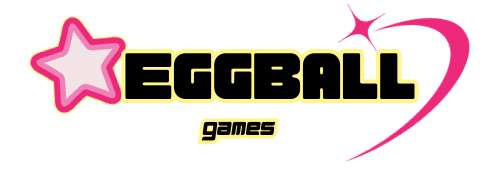In the realm of business, the word ‘debt’ often rings alarm bells. When managed poorly, debt can indeed lead to potentially devastating consequences. However, if approached with astute financial planning and diligent management, debt can be instrumental in fueling growth and expansion. The key lies in taking the reins of business debt management, to ensure that your company maintains a healthy financial state.
Understanding your Debt
Before you can begin to manage your business debt effectively, it is imperative to have a thorough understanding of your financial situation. This includes having a clear picture of how much debt your business currently holds, identifying your creditors, understanding the interest rates attached to each debt, and knowing when each payment is due.
Dans le meme genre : The future of autonomous vehicles in business logistics
It is also crucial to understand the different types of debt your business may have. These can range from secured debts such as mortgages and vehicle loans, to unsecured debts like credit cards and supplier credits. Each debt type comes with its own set of rules and implications, hence understanding them will help in developing a more efficient management plan.
Moreover, understanding your debt also means being aware of your credit situation. This includes your credit score, credit history, and credit utilization ratio. These factors can significantly influence your ability to secure new credit and negotiate better terms with your creditors.
Avez-vous vu cela : How to build a strong online community around your brand
Developing a Financial Plan
Once you have gained a thorough understanding of your debt, the next step involves developing a comprehensive financial plan. This plan should outline how your business intends to allocate its resources to meet its debt obligations. It should cover aspects such as income projection, expense budgeting, cash flow management, and savings plan.
When developing your plan, it is crucial to prioritize your debts. Debts with higher interest rates should generally be paid off first, as they accumulate more costs over time. However, it is also worth considering the terms and conditions attached to each debt. For instance, some debts may have penalties for late payments, which could outweigh the benefits of paying off high-interest debts first.
A good financial plan also takes into consideration any potential risks and setbacks. This could include factors such as market volatility, changes in interest rates, or unexpected expenses. By planning for these risks, your business will be better prepared to handle them should they arise.
Negotiating with Creditors
In situations where your business is struggling to meet its debt obligations, it may be beneficial to negotiate with your creditors. Many creditors are willing to work out a payment plan that suits both parties, rather than forcing a business into bankruptcy.
When negotiating, it is important to be honest about your business’ financial situation. Provide your creditors with a clear picture of your current financial state, including your income, expenses, and cash flow. This will help them understand your difficulties and make them more likely to agree to a modified payment plan.
Also, be proactive in your negotiations. Don’t wait until you’ve missed several payments before initiating a conversation with your creditors. Instead, reach out as soon as you realize you’re having trouble meeting your payments. This shows your creditors that you’re committed to paying your debts, which may make them more willing to work with you.
Using Debt Management Companies
Debt management companies can be a valuable resource for businesses struggling with debt. These companies work by negotiating with your creditors on your behalf, to reduce your interest rates or adjust your payment plan. They can also provide you with financial counseling and budgeting assistance to help you manage your debts more effectively.
When choosing a debt management company, it’s important to do your research. Look for companies that have a strong track record of successful negotiations, and are accredited by reputable financial institutions. Be wary of companies that charge upfront fees, or that promise to eliminate your debts entirely. Remember, if something seems too good to be true, it probably is.
Exploring Debt Consolidation Options
Another tool that can assist in business debt management is debt consolidation. This involves combining multiple debts into a single loan, which can simplify your payments and potentially lower your interest rates.
Before proceeding with debt consolidation, it’s essential to weigh its pros and cons. While it can make your payments more manageable, it may also extend your repayment period, which means you could end up paying more in interest over time.
Furthermore, not all debts are suitable for consolidation. It’s best to consult with a financial advisor or debt management company before making any decisions.
In summary, tackling the challenge of business debt management requires a thorough understanding of your debt, a well-crafted financial plan, strategic negotiations with creditors, and the consideration of professional help or consolidation options. By taking these steps, you can ensure that your business maintains a sound financial footing while navigating the complexities of debt management.
Evaluating Debt Settlement and Debt Relief Options
Upon facing issues managing business debt, exploring the possibility of employing debt settlement or debt relief options becomes a viable resort. These options usually involve negotiating with creditors to reduce the total amount of debt owed, or altering the terms of the debt to make repayment more manageable.
In a debt settlement arrangement, the debtor negotiates with the creditor to pay less than the full amount of the debt. This approach requires skilled negotiation and should be considered carefully as it might impact your credit score negatively. On the other hand, debt relief often implies a reorganization of the debt, where the terms of repayment are altered, making it easier for businesses to manage their debts without severely straining their cash flow.
These options are typically facilitated by a credit counselor or a debt relief company. However, tread cautiously while selecting an agency, since a few unscrupulous firms may charge exorbitant fees without providing adequate services.
For small business owners, it might be beneficial to consult a financial advisor or a reputable credit counseling agency to understand all possible alternatives and their implications. It’s noteworthy that while these options can provide some relief, they are not a magic wand. The core of managing business debt still lies in disciplined financial planning and effective cash flow management.
Dealing With Technical Debt and Organizational Debt
While financial debt is a tangible challenge that businesses face, technical debt and organizational debt are two intrinsic types of debt that can equally hamper a business’s progress if not addressed timely.
Technical debt refers to the cost of additional rework caused by choosing an easy solution now instead of using a better approach that would take longer. Often, in the rush to deliver a product or service, shortcuts are taken that could lead to issues in the future. This could be in the form of sloppy code in software development or compromised quality in product manufacturing. Eventually, these issues catch up and the cost of fixing them (the technical debt) can be significant.
Organizational debt, similar to technical debt, is the cost of putting off necessary organizational changes. It includes outdated business processes, poor customer experience, inefficient management structures, and more. Just like financial debt, if not dealt with, organizational debt can cripple a business’s growth.
To manage these types of debt, it’s essential to invest time and resources in continuous improvement and innovation, regularly updating business processes, and enhancing the customer experience.
Conclusion
Navigating the challenge of business debt management is no easy feat. It requires a comprehensive understanding of your debt, meticulous financial planning, and regular monitoring of business practices. Exploring options like debt settlement, debt relief, or debt consolidation can provide temporary respite, but the importance of maintaining a healthy cash flow and managing technical and organizational debt cannot be overstated.
Involving a financial advisor or a credit counselor can offer valuable insights and help devise a robust management plan. The key is to make informed decisions, stay disciplined, and continually strive for efficiency and improvement. By doing so, business owners can turn the tide and use debt as a tool for growth rather than a hindrance.






